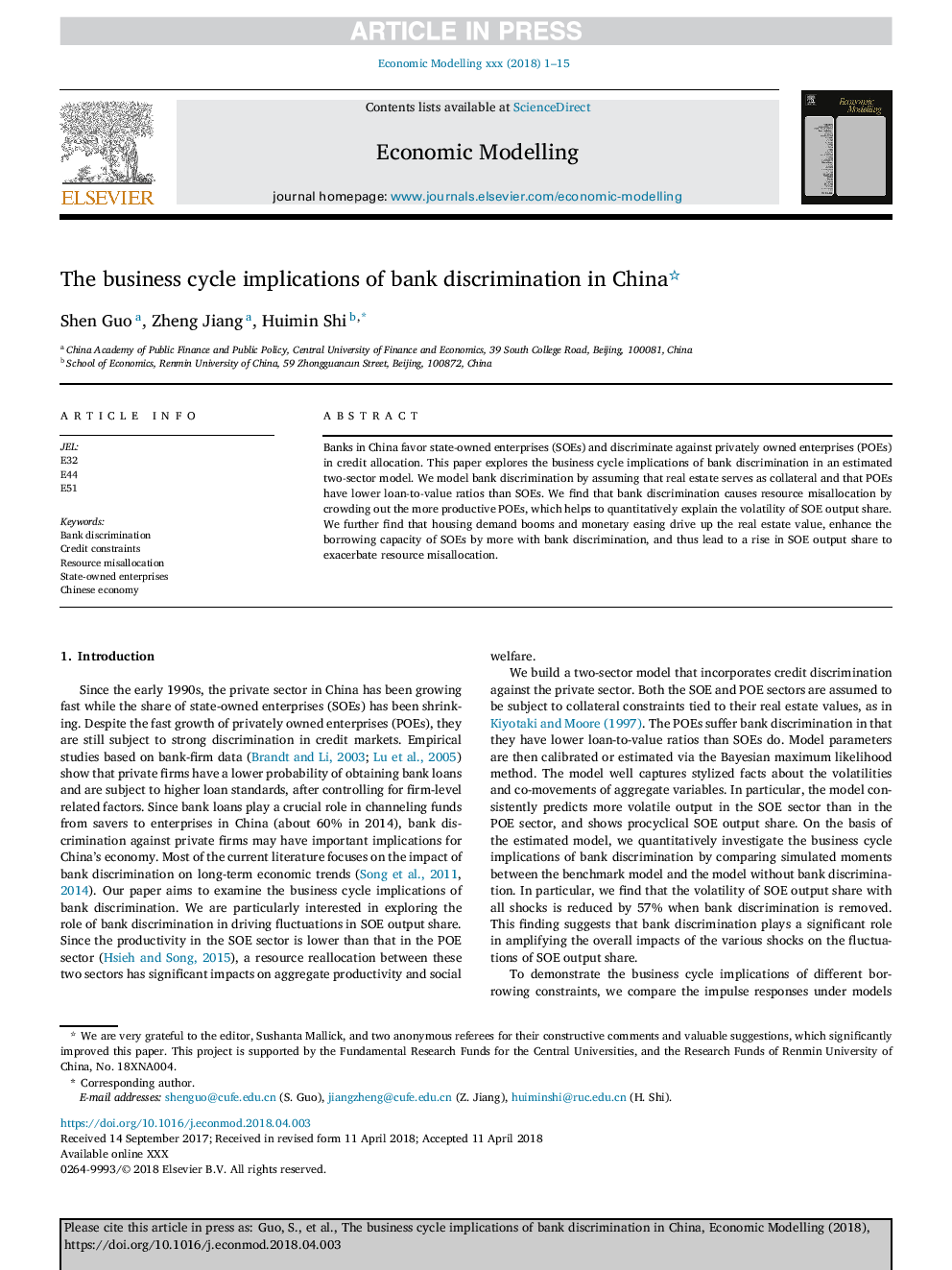| Article ID | Journal | Published Year | Pages | File Type |
|---|---|---|---|---|
| 7346802 | Economic Modelling | 2018 | 15 Pages |
Abstract
Banks in China favor state-owned enterprises (SOEs) and discriminate against privately owned enterprises (POEs) in credit allocation. This paper explores the business cycle implications of bank discrimination in an estimated two-sector model. We model bank discrimination by assuming that real estate serves as collateral and that POEs have lower loan-to-value ratios than SOEs. We find that bank discrimination causes resource misallocation by crowding out the more productive POEs, which helps to quantitatively explain the volatility of SOE output share. We further find that housing demand booms and monetary easing drive up the real estate value, enhance the borrowing capacity of SOEs by more with bank discrimination, and thus lead to a rise in SOE output share to exacerbate resource misallocation.
Related Topics
Social Sciences and Humanities
Economics, Econometrics and Finance
Economics and Econometrics
Authors
Shen Guo, Zheng Jiang, Huimin Shi,
